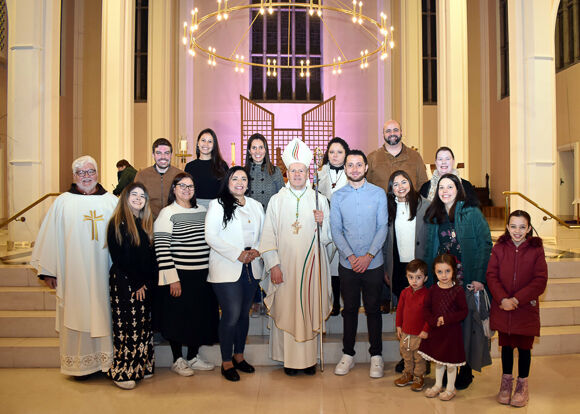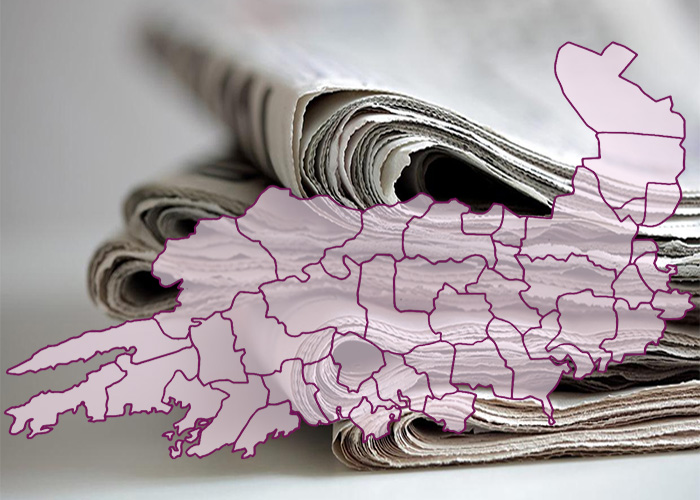“The joy of the gospel fills the hearts and lives of all who encounter Jesus.” Pope Francis
Have you felt the first stirrings of the joy of the Gospel in your heart?
Are you curious about some aspects of Catholicism and want to know more?
The RCIA (or Rite of Christian Initiation of Adults) is the way through which non-baptised men and women become members of the Catholic Church. It is also a path for people who were baptized in another Christian denomination and now wish to become Catholic. It is a process through which people come to encounter Jesus through the liturgy and by reading and reflecting on Scripture within the faith community. Participants are accompanied by members of the local Parish or Family of Parishes who will support them by witness, guidance and prayer.
Participants will be asked to attend weekly meetings and join the faith community for Sunday Mass. Participants will also be accompanied by a sponsor, someone who is a practicing Catholic and who will walk with them on their journey.
 The Easter Vigil celebrated at the Cathedral with Bishop Fintan Gavin included the initiation in to the Catholic Church of two people who have come to Cork from Brazil.
The Easter Vigil celebrated at the Cathedral with Bishop Fintan Gavin included the initiation in to the Catholic Church of two people who have come to Cork from Brazil.Where do I start?
In order to begin RCIA, you make initial contact through your local priest. This will be a general chat about your story so far and what has led to your decision to find out more about RCIA. You can find out who your local priests are by looking up your parish.
or if you know the name of your parish
Select your Parish from this list
When you find your Parish, you will see a list of priests ministering to that Parish.
If you are happy with what you have heard so far, the priest will suggest the nearest RCIA group to you.
The RCIA is a journey which takes place over a number of stages:
1. Inquiry Period
During this initial stage a person approaches their local parish or faith community and expresses their interest in finding out more about Jesus and His Church. They are welcomed by the parish community. The inquiry period is a time of seeking and searching. The inquirer hears the Gospel and is invited to reflect on their spiritual journey so far, asking themselves where God has been present to them in their lives and what God may inviting them to now.
2. Catechumenate
The Catechumenate is the name which the early Church used for the period of preparation before receiving the Sacrament of Baptism. We use the same name today. It is a time when the inquirer, who has now become a catechumen, begins their preparation for initiation into the community in earnest. It is an apprenticeship in faith, where the catechumen discovers all dimensions of Christian living: what the Church believes, how we celebrate our faith in the liturgy and sacraments, how we live our faith by imitating Jesus and how we pray as children of God.
3. Period of Purification and Enlightenment
This period coincides with Lent and involves the final preparation for receiving the Sacraments of Baptism, Confirmation and Eucharist. The catechumens apply to attend the Rite of Election on the First Sunday of Lent where they are presented to the Bishop. They are accompanied by members of the RCIA Team, the Parish community, and their sponsor. The Elect, as they are now known, grow more deeply by prayer, renewal and repentance into the life of God.
4. Celebration of the Sacraments of Initiation
The Sacraments of Initiation – Baptism, Confirmation and Eucharist – are received during the Easter Vigil. Those who are already baptised Christians, but haven’t received Confirmation and the Eucharist, may receive those sacraments during the vigil too, and so enter into full communion with the Catholic Church.
5. Mystagogy or Post-Baptismal Catechesis
The word mystagogy comes from the Greek. It means learning about the mysteries. Now that the newly baptised, or Neophyte, has received the grace of the sacraments they reflect on the meaning of these sacraments and how they can participate in the mission of Christ. Conversion doesn’t end with the Easter Vigil. It is a life-long journey.

